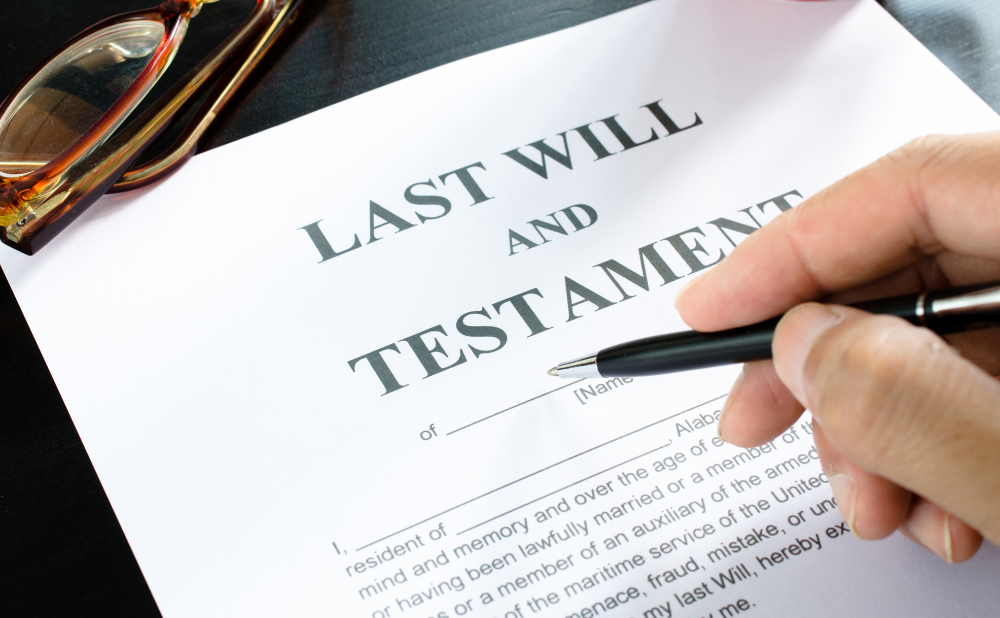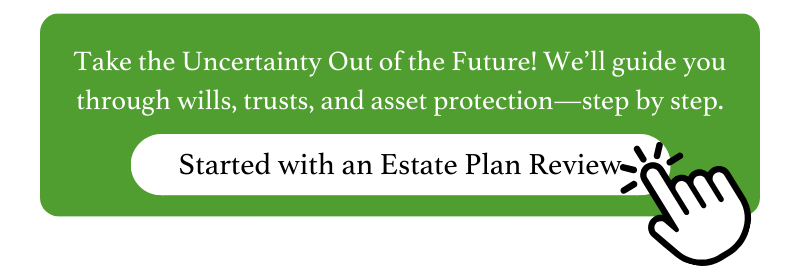Thinking about the future can feel a bit heavy, can’t it? We plan for vacations, big purchases, and even dinner. But what about planning for what happens when we’re no longer around? This is where a last will and testament becomes so important. It’s a conversation many of us put off, yet having a last will and testament is one of the most caring things you can do for the people you love.
You might be surprised how much peace of mind comes with knowing your affairs are in order. It’s not just about money or property; it’s about clarity and protection for your family, ensuring your final wishes are known and followed.
In this article, we will explore what should be in your last will and testament, why you need one, and how a seasoned estate planning attorney can help.
What Exactly Is a Last Will and Testament?
So, what is this document we keep mentioning? A last will and testament is a critical legal document where you state your wishes for how your personal property and other assets should be distributed after you pass away. It also lets you name an executor, often called a personal representative, the person you trust to carry out these final wishes. Think of it as your final set of instructions for your entire estate.
Within your will, a testament legal document, you’ll typically outline who gets what; these individuals or entities are your beneficiaries. If you have minor children, this document is also where you name a guardian to care for them, a profoundly important decision that your will makes official.
For a will to be valid, the testator (the person making the will) must be of sound mind and understand the actions they are taking.
It’s a foundational piece of your estate plan, which is the broader process of managing your assets during your lifetime and planning for their distribution after your death. While a will deals with what happens after you’re gone, some people get it confused with a living trust or a living will, which outlines your medical wishes if you can’t speak for yourself. They are different, but both very important planning documents for future preparedness.
Why Everyone Needs a Last Will and Testament (Yes, Even You.)
It’s a common thought: “I’m too young for a will,” or “I don’t really own much.” But the truth is, nearly every adult can benefit from having a last will and testament. Age and wealth aren’t the only factors; if you have anyone you care about or specific final wishes you want followed, a will is for you, and it’s a good idea to create one.
What happens if you don’t have one?
This situation is called dying intestate. If this happens, state laws, not you, decide how your assets are divided, and these intestacy laws have a set formula, usually prioritizing a spouse, then living children, then parents, and so on, potentially distributing assets in equal shares where you might have preferred otherwise.
Without a will, the probate court will appoint an administrator to handle your estate and distribute assets. This person may not be who you would have chosen, and the probate process can lead to delays, extra court costs, and unfortunately, sometimes disagreements among family members during an already difficult time. These are burdens you can spare your loved ones by clearly stating who should receive the property.
The absence of a will can also open the door to challenges or claims of undue influence, especially if family dynamics are complicated. Having a properly executed legal document detailing your final wishes regarding your entire estate significantly reduces these risks. This protects your loved ones from unnecessary stress and potential conflict, avoiding a scenario where a contesting beneficiary might emerge.
The Benefits of Having a Will
Now, let’s look at the positives of having a will. First and foremost, you decide who inherits your property. You choose your personal representative, someone you trust to manage everything respectfully and efficiently. This is your voice, even when you’re not there to answer even simple questions.
For parents with minor children, a will is critically important. It’s where you name a guardian, the person who will raise your children if you and their other parent are gone. Without your stated preference, a probate court will make this incredibly personal decision for your living children, which can be a distressing thought.
A will can also help reduce potential conflicts among your loved ones. By clearly stating your final wishes, you leave less room for arguments or misunderstandings when it comes to how to distribute assets. You can even make specific gifts, like a piece of jewelry to a specific niece or your book collection to a close friend, and also arrange for funeral expenses to be paid from the estate.
Key Terms You’ll Hear When Discussing Your Will
Talking about wills can involve some specific language. Knowing a few key terms can make the process feel less confusing. Let’s break down some common ones you might encounter when seeking legal advice.
The person making the will is called the “testator”; that’s you. The “executor” (sometimes called a “personal representative” depending on your state) is the individual or institution you appoint to carry out the instructions in your will. This named executor manages your estate, pays any debts and taxes, including dealing with the Internal Revenue Service if necessary, and distributes your assets according to your wishes, often for reasonable compensation.
A “beneficiary” is any person or organization that receives something from your will; beneficiaries designated by you can be family members, friends, or even charities. If you have minor children, the “guardian” is the person you name to care for them and manage their inheritance until they reach adulthood. A “testamentary trust” is a trust created by the terms of your will, which only comes into effect after the testator passes, and can be useful for managing assets for beneficiaries over time.
“Probate” is the legal process that happens after someone dies, overseen by the probate court. It involves proving the validity of the will, gathering assets, paying debts and taxes, and distributing the remaining property as outlined in the estate planning documents. The probate process can be lengthy, but a clear will, where the testator declared their intentions and the document was willingly signed with proper witness signature protocols, can help make it smoother.
If someone dies “intestate,” it means they passed away without a valid will. In this situation, as we mentioned, state law dictates how assets are distributed, which might not reflect what you would have wanted for your children and/or other loved ones. Understanding the importance of the testator signature and ensuring witnesses sign correctly are crucial steps to avoid issues of being legally incompetent at signing or facing challenges.
Finally, what if you need to make a change to your will after it’s signed?
A small change can sometimes be made with a document called a “codicil,” which is a legal amendment to your existing will. For bigger changes, it’s often better to create an entirely new will, ensuring all previous versions are clearly revoked.
What Can You Include in Your Last Will and Testament?
Your last will and testament is a powerful tool because it lets you direct many important matters. What exactly can you put in it? You have quite a bit of control over how you leave property.
The most common thing is directing the distribution of your assets. This includes things like your home and other real estate, money in bank accounts, investments like stocks and bonds, and your personal property – from cars to furniture to sentimental items. You can be specific about who gets what, or you can direct assets to be divided in equal shares or other proportions.
You absolutely must appoint an executor or personal representative. This is the person (or institution, like a bank’s trust department) responsible for settling your entire estate according to your will’s terms. Choose someone organized, trustworthy, and capable of handling financial and legal responsibilities; they are entitled to pay reasonable fees for their service from the estate.
It’s also wise to name an alternate executor in case your first choice cannot serve. As mentioned, naming guardians for your minor children is one of the most vital functions of a will for young parents. You can also often include provisions for the care of your pets, sometimes by creating a small pet trust created through your will or naming a specific caretaker and providing funds; such planning for pets is a good idea.
If you want to provide for a loved one over a longer term or protect assets for a beneficiary who might not be good with money, you can establish testamentary trusts through your will. This type of trust only comes into existence after your death, as specified in this crucial legal document. You can set rules for how and when the funds are distributed, offering protection and control.
You can also make gifts to charitable organizations, leaving a legacy that reflects your values. Your will can even address things like forgiving debts owed to you. Additionally, you can outline how digital assets should be handled, perhaps even appointing a digital executor to manage online accounts and files, an increasingly important part of estate planning.
What Typically Cannot Be Controlled by a Will?
While a will is very powerful, it doesn’t control everything you own. Some assets pass to beneficiaries outside of the will, based on how they are titled or by beneficiary designations. It’s important to understand these distinctions for your overall estate plan and how various assets pass upon death.
Assets that usually bypass your will include things like a life insurance policy and retirement accounts such as 401(k)s, IRAs, and pensions (your retirement plan). For these, you directly name a beneficiary (or beneficiaries designated by you) with the financial institution holding the account. Those beneficiary designations will generally override what your will says for those specific assets; the same applies to any insurance policy with named beneficiaries.
Property held in “joint tenancy with rights of survivorship” (JTROS) also passes directly to the surviving joint owner(s) outside of the will. This is common for real estate owned by married couples or other joint tenancy assets. The same often applies to bank or brokerage accounts titled as JTROS or with a “Payable on Death” (POD) or “Transfer on Death” (TOD) designation.
If you have assets held in a living trust, those assets are governed by the terms of the trust created during your lifetime, not your will. A living trust is another estate planning tool that is set up while you are alive. Assets must be properly transferred into the trust for it to be effective in bypassing probate for those specific assets.
Interestingly, funeral instructions in a will might not be ideal. While you can state your wishes regarding funeral expenses and arrangements, your will might not be read until after your funeral. It’s often better to communicate funeral preferences in a separate letter of instruction and to family members directly, so these final wishes are known promptly.
Here’s a quick look at how different assets might be handled:
| Asset Type | Typically Passes Via Will? | How it Passes if Not Via Will |
|---|---|---|
| Real Estate (Sole Ownership) | Yes | N/A |
| Bank Accounts (Individual) | Yes | N/A |
| Personal Property (Jewelry, Art, Cars) | Yes | N/A |
| Life Insurance Policy | No (Usually) | To designated beneficiaries named on the policy. |
| Retirement Accounts (401k, IRA) | No (Usually) | To designated beneficiaries named on the account. |
| Property in Joint Tenancy (JTROS) | No | Directly to surviving joint owner(s). |
| Assets in a Living Trust | No | According to the terms of the trust created. |
| Bank Accounts with POD/TOD Designation | No | Directly to the Payable on Death/Transfer on Death beneficiary. |
Understanding these differences is key to a comprehensive estate plan.
Steps to Creating Your Last Will and Testament
Ready to get started on your last will and testament? The process might seem big, but you can break it down into manageable steps. Taking it one piece at a time makes it much more approachable for these essential estate planning documents.
First, make a thorough list of your assets. This includes real estate, bank accounts, investments, valuable personal property, and even digital assets. Also, list your significant debts; this inventory gives you a clear picture of what your estate involves and what property you will leave.
Next, think carefully about who you want your beneficiaries to be and what you want each to receive. Consider backups in case a primary beneficiary predeceases you, or vice versa. Then, choose your executor wisely; this named executor should be someone you trust implicitly to handle your affairs with integrity and diligence after the testator passes. Don’t forget to ask them if they are willing to take on this responsibility.
If you have minor children, deciding on a guardian is a profound step. Talk to your potential guardian(s) beforehand to make sure they are willing and able to take on this role. It’s a significant commitment for them, and their agreement is vital for your peace of mind about your living children.
While DIY will kits exist, working with an experienced estate lawyer is highly recommended for such an important legal document. State laws regarding wills can be very specific, and errors in a DIY will can make it invalid or lead to serious problems for your loved ones, potentially even claims that the testator was legally incompetent or that the document was not willingly signed. An attorney can provide specific legal advice to help you think through all possibilities and make sure your will truly reflects your wishes and meets all legal requirements in your state, including those related to community property if applicable.
Finally, there are formal requirements for making a will valid. Generally, the will must be in writing, with the testator signature at the end, and witnessed by a certain number of people (usually two or three, depending on state law) who are not beneficiaries – these are the undersigned witnesses. Your attorney will guide you through this signing ceremony, often called an execution, where the testator declared the document to be their will and the witnesses sign in their presence, and often in the presence of each other; this is sometimes formalized with phrases like “witness whereof.”
A notary public might also be involved, not necessarily to validate the will itself (witnesses do that), but to acknowledge the signatures on a self-proving affidavit, which can simplify the probate court process later. Once executed, the original copy of your will should be stored securely, perhaps in a safe deposit box or a fireproof safe at home, and your executor should know its location. Having these planning documents in order is a good idea.

Keeping Your Last Will and Testament Up to Date
Creating your last will and testament isn’t a one-and-done task. Life changes, and your will should change with it. Reviewing your will periodically and after major life events is crucial to make sure it still reflects your final wishes and circumstances.
So, when should you dust off your will and take another look? Key times include changes in marital status, such as marriage or divorce. Both events can dramatically alter your intentions and legal standing regarding inheritance, especially considering common law or community property rules.
The birth or adoption of a child is another major reason to update your will, to include them and name guardians if necessary. If a beneficiary, the named executor, or a guardian in your will passes away, becomes legally incompetent, or is otherwise unable to serve, you’ll need to make changes. Significant changes in your financial situation, such as a large inheritance, a major business sale, or acquiring substantial new assets, also call for a review of your estate plan.
Even moving to a new state can be a reason to update, as will and probate laws vary from state to state. Changes in tax laws, especially estate tax laws administered by the Internal Revenue Service, might also prompt a review with your estate lawyer to see if your plan needs adjustment to reduce taxes or account for new regulations impacting your tax returns. As a general rule, it’s a good idea to review your will every three to five years, even if no major life changes have occurred, just to be sure it’s still current.
How do you update your will?
You can either create an entirely new will, which revokes all previous wills, or, for minor changes, you might use a codicil. A codicil is a separate legal document that amends specific parts of your existing will, requiring the same signing and witness signature formalities as the original will. Your attorney can advise you on the best approach based on the extent of the changes needed to your estate planning documents.
How Bumbaugh | George | Prather | DeDiana Can Help You with Your Last Will and Testament
Understanding that you need a last will and testament is the first step. The next is getting it done right. That’s where dedicated legal professionals, like the team at Bumbaugh | George | Prather | DeDiana, can be so helpful in preparing these critical planning documents.
We approach creating your will with a focus on your individual situation. We listen to understand your family dynamics, your assets, and your specific final wishes. This personal touch allows us to help you craft a legal document that truly represents you and your intentions for your entire estate.
The specific legal requirements for a valid will can seem intricate. Our team helps you understand these rules to make sure your will is legally sound and will stand up in probate court if needed. We draft your will using clear language, aiming to prevent any confusion or ambiguity later on, reducing the risk of a contesting beneficiary.
Choosing an executor and guardians involves careful thought and often requires answering some simple questions about responsibilities. We can offer guidance as you consider your options, helping you understand the duties these roles entail, including the expectation to pay reasonable expenses from the estate and possibly receive reasonable compensation. We want you to feel confident in the people you select to carry out your important final wishes when the testator passes.
Life doesn’t stay static, and neither should your will. As your circumstances change—your marital status shifts, you have more children and/or assets—we can help you review and update your last will and testament. Whether through a codicil or a new will, we ensure it always aligns with your current life stage and intentions. Our goal is to give you the peace of mind that comes with knowing you’ve protected your loved ones and clearly stated your desires.
Conclusion
Creating a last will and testament is a profound act of care for those you leave behind. It’s about making your final wishes known, protecting your assets, and providing for your family’s future security. It allows you to make critical decisions about who will receive property from your entire estate and who would care for your minor children, rather than leaving those choices to state law or a probate court after the testator passes.
Although it might seem like a task for “later,” the best time to address your last will and testament, a cornerstone of your estate plan, is now. Taking this step brings a significant sense of relief and is always a good idea. Knowing you have your planning documents in place means you’ve done what you can to make a difficult time a little easier for the people you cherish most. It’s a final gift of love and responsibility, ensuring your personal property and other assets are handled according to your express desires.
Frequently Asked Questions About a Last Will and Testament
What happens if someone dies without a last will and testament?
When a person dies intestate (without a valid will), the state decides how to distribute their assets according to local intestacy laws. This often means property may not go to the people the deceased intended. Creating a last will and testament can help ensure your wishes are followed.
Is a last will and testament the only document I need for my estate plan?
No. A comprehensive estate plan typically includes other estate planning documents such as a financial power of attorney, healthcare directive, and possibly a trust. A will is essential, but it’s just one part of planning for incapacity and asset distribution.
Can I write my own last will and testament without a lawyer?
While some people choose DIY wills, working with an attorney ensures your estate planning documents meet legal requirements in your state. Mistakes in wording or execution can cause confusion or lead to a will being contested or declared invalid.
When should I update my last will and testament?
You should review and update your last will and testament any time your life circumstances change, such as marriage, divorce, the birth of a child, or acquiring significant assets. Regular updates help keep your estate plan aligned with your current wishes.
Do I still need a will if I already have a trust in my estate plan?
Yes. Even if your estate plan includes a trust, a last will and testament, often called a “pour-over will,” is still important. It can direct any remaining assets into the trust and cover items that may not be included in the trust during your lifetime.







